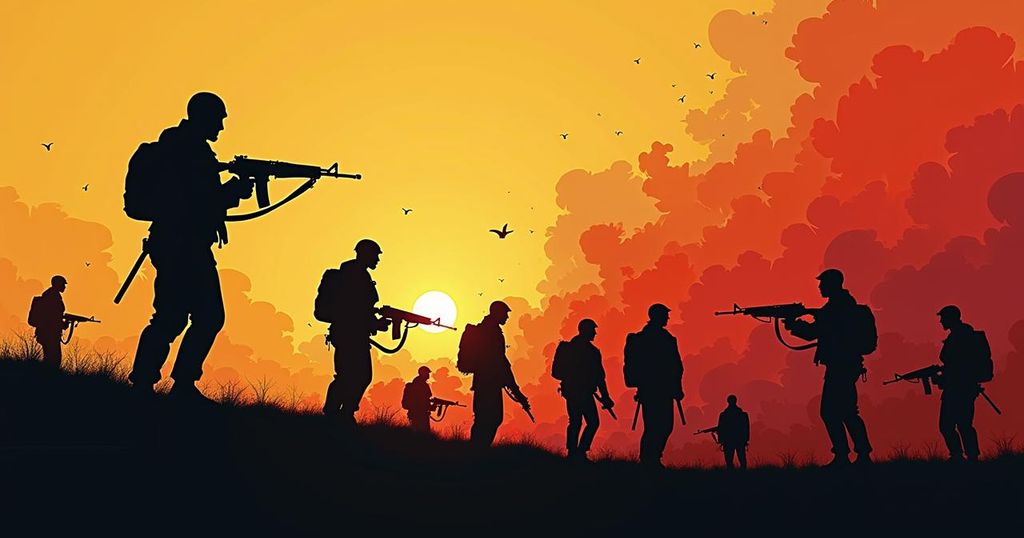This article analyzes the current conflict between Israel, Hezbollah, Hamas, and Iran within the framework of the post-post-Cold War struggle between a coalition of inclusion, led by the U.S., and a coalition of resistance, comprised of authoritarian regimes. The implications of these conflicts extend beyond regional dynamics, affecting global alliances and power structures.
The recent conflict involving Israel, Hezbollah, Hamas, and Iran symbolizes a significant geopolitical struggle that extends beyond regional borders. This confrontation demands an understanding of a new global dichotomy following the Cold War era. Presently, we find ourselves amidst what can be termed the post-post-Cold War, characterized by a clash between a coalition of inclusion and a coalition of resistance. The coalition of inclusion comprises nations aspiring towards greater democratic values and economic integration, orchestrated under U.S. leadership. In stark contrast, the coalition of resistance is predominantly formed by authoritarian regimes, such as Russia, Iran, and North Korea, who utilize their opposition to Western ideals to maintain control over their societies through militarization and repression. China remains in a delicate position, balancing its economic dependencies on the coalition of inclusion while sharing authoritarian characteristics with the coalition of resistance. The ongoing conflicts in Ukraine, Gaza, and Lebanon must be interpreted within the context of this broader international struggle. Ukraine’s pursuit of integration with the European Union signifies its desire for freedom from Russian influence, while Israel and Saudi Arabia aim to foster regional alliances that align with the inclusion narrative. Russia’s actions reflect an attempt to obstruct Ukraine’s aspirations to join the West, paralleled by Iran, Hamas, and Hezbollah’s collective effort to undermine Israel’s normalization with Saudi Arabia. The potential for Israeli-Saudi relations to strengthen the coalition of inclusion poses a grave threat to Iran and its associated militant groups, which are striving to maintain their power amid increasing isolation.
This article is situated in the context of the evolving geopolitical landscape following the Cold War. It delves into the contemporary dynamics between nations, elucidating the increasing friction between those favoring inclusion and collaboration in global affairs versus those resistant to such frameworks. By examining the interactions and conflicts involving Israel, Hezbollah, Hamas, and Iran, as well as the broader implications for global governance, the discourse highlights the complex nature of international relations today.
In summary, the ongoing conflict involving Israel and its adversaries, including Hezbollah and Hamas, must be viewed through the lens of a broader geopolitical struggle. This encompasses a definitive clash between global coalitions vying for influence and control, with the stakes not merely limited to regional conflicts but vital to the shaping of international relations in the post-post-Cold War era. The outcomes of these confrontations will significantly affect the strategies and alignments of major powers across the globe, particularly in relation to authoritarianism versus democratic values.
Original Source: www.nytimes.com






